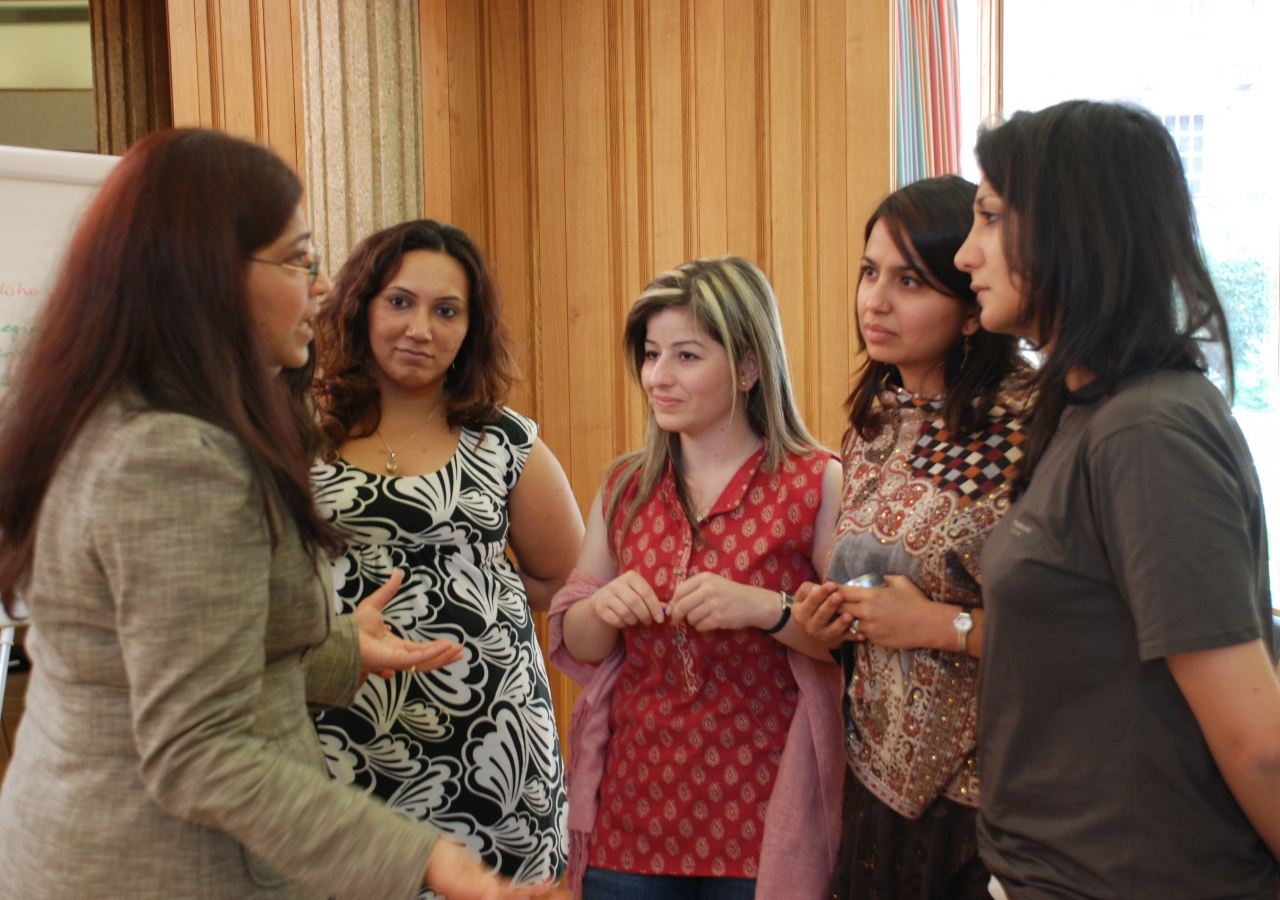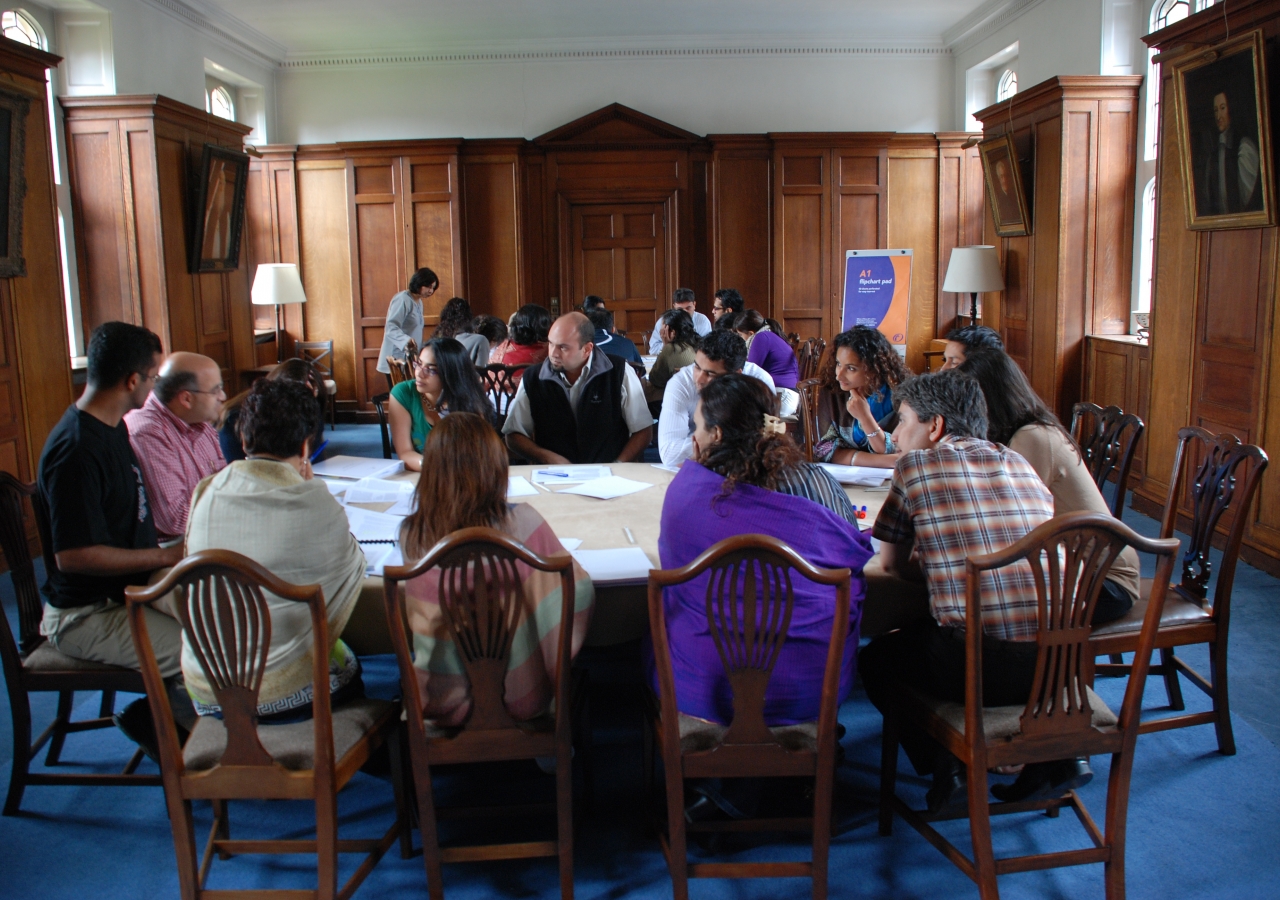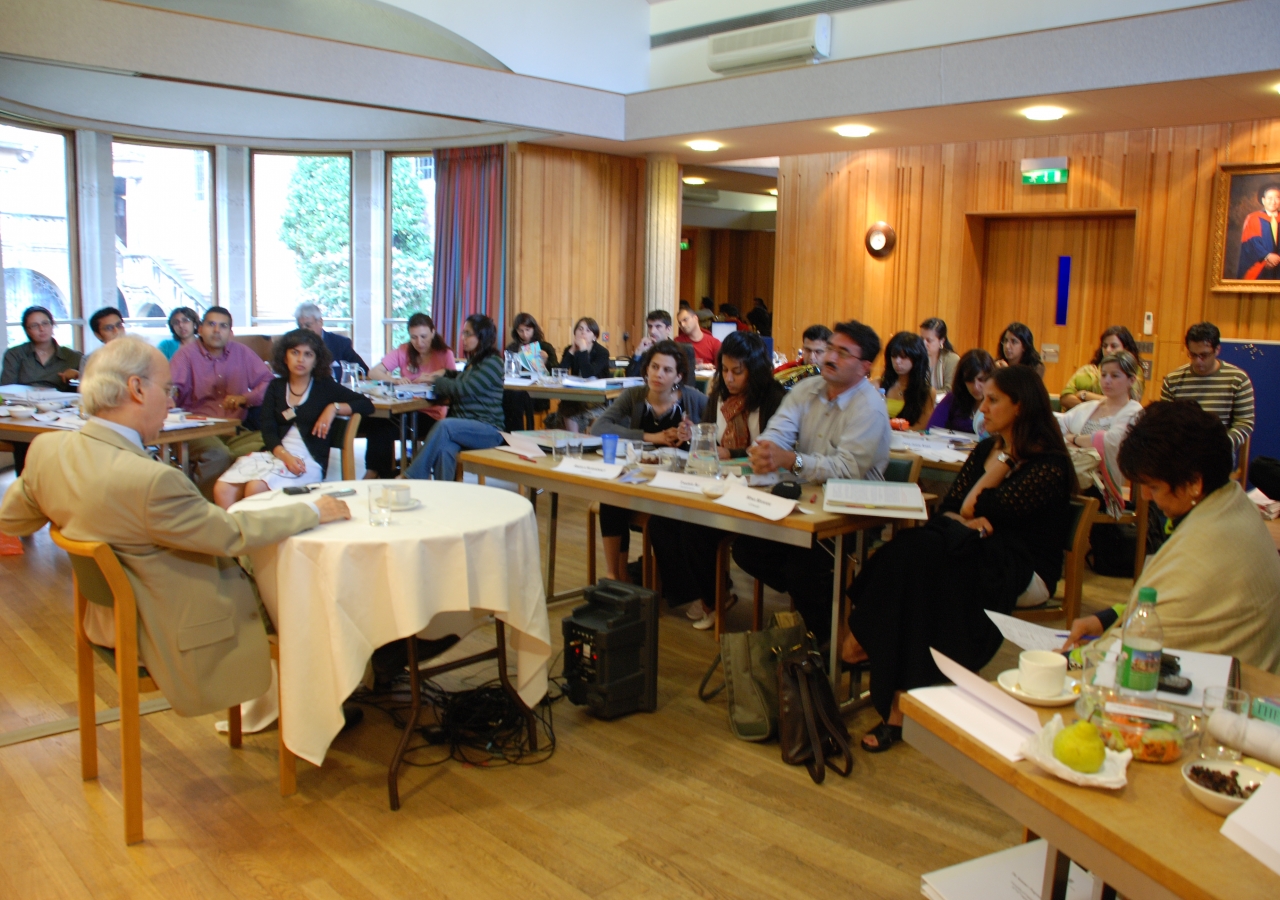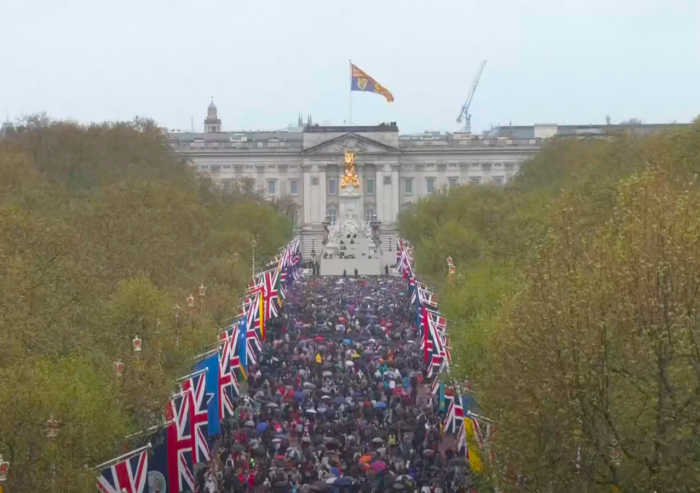A museum in London exhibits “Islamic art.” “Islamic mortgages” are available at a Karachi bank. Meanwhile, a market in Sana'a sells “Islamic socks.”
The adjective Islamic is applied to a growing range of nouns. But what does it mean? What shared attributes make a piece of art, a mortgage and a pair of socks Islamic? Would the term have carried the same meaning 10, 100 or 1 000 years ago?
Participants at The Institute of Ismaili Studies' Summer Programme on Islam puzzle with questions such as these. What describes Islamic or qualifies Muslim? Do simple definitions and identifiers exist? And what are the implications of using these terms to describe people, places and things?
SPI Lesson 1: It is often assumed that words have simple, fixed definitions, but meanings are mutable as contexts and perspectives evolve in time.
Studying law in Boston is very different from studying it in Tehran; partly due to differences in context, but also the influence of curricula. In determining what knowledge to include and exclude, an institution of learning shapes the perspective of its student.How often do individuals question the validity of their own educational backgrounds? A law student will typically study responses to questions such as: What is law? Who makes law? Why does society need law? How are laws written? What types of law are there?
But is the student equipped to seek out and critically reflect on the unthought gaps in their knowledge? Or does the student graduate as a lawyer, under the impression that what they have been taught is all they need, unaware – or worse, fearful – of that which they do not know?
SPI Lesson 2: Institutions of learning play a significant role in shaping the opinions and thinking of a society – not only through the conscious selection of what subjects are taught and how, but also in determining what is not taught.
“In our respective abodes, each of us must grapple with different environments, shaped by distinct cultural perspectives, traditional influences and geo-political forces. We need an appropriate language with which to engage in national conversations. This programme provides an avenue to develop such a language, by bringing together a broad range of voices, including senior academics who are authorities in their own fields, with safe spaces to critically examine the dominant constructs of history, tradition and doctrine.”
– SPI 2008 participant
The Summer Programme promotes a collegial atmosphere among participants. Deconstructing and re-thinking previously unchallenged ideas can be difficult, but the programme environment is supportive and encouraging. Everybody travels along the same path together, albeit at different speeds and from different points of departure.
With the help of scholars at the top of their fields, participants are introduced to new principles and ideas. The faculty provide tools to digest this information but it is through dialogue and engagement that participants turn it into knowledge.
SPI has a ripple effect on the lives of the 40 Ismaili participants selected from a pool of hundreds who apply to attend the programme each year. Hailing from far-flung corners such as Khorog, New York and Salamieh, they share an intense and, at times, emotional learning experience.
Curiosity, confusion and moments of clarity punctuate discussions about the Fatimids, about the origins of rituals, about the difference between the faith of grandmothers and mothers. The broad range of contexts represented in every conversation only serves to deepen the value of the programme beyond simply intellectual investigation.
SPI Lesson 3: Dialogue and expression are powerful tools of learning. Reading in isolation provides merely a one way transfer of information, and is only half of the process of engaging with knowledge.
The SPI journey is one that begins with unlearning – the daunting process of reviewing the knowledge base; of constructively questioning all prior postulations. This prepares the mind for new premises on which to build a more solid understanding. In the course of the week, a number of assumptions are disposed of, and new questions come to the fore. As the programme unfolds, the questions evolve.Draw a vertical line through Karachi on a world map and survey the population on either side of the line – over half of the world's Muslims live east of that line. A majority do not speak Arabic as their first language. These little known facts come as a surprise to most people.
The seasoned query, “why do some Muslim women wear the veil?” obliges an understanding of the notion of modesty in Islam and culturally appropriate clothing. It also brings the interplay of theology, culture and politics into focus in shaping the discourse on the veil.
SPI lesson 4: To the questions worth asking, there usually aren't simple answers – let alone exclusively correct ones!
The question every SPI participant faces when they return home is the inevitable: What have you been doing on your week off? Typically, there is no single, simple answer.
When you attend the programme, you'll find your own way to explain and share the experience.
The Institute of Ismaili Studies is currently accepting applications for the 2009 Summer Programme on Islam. To learn more and obtain an application, visit their website.










